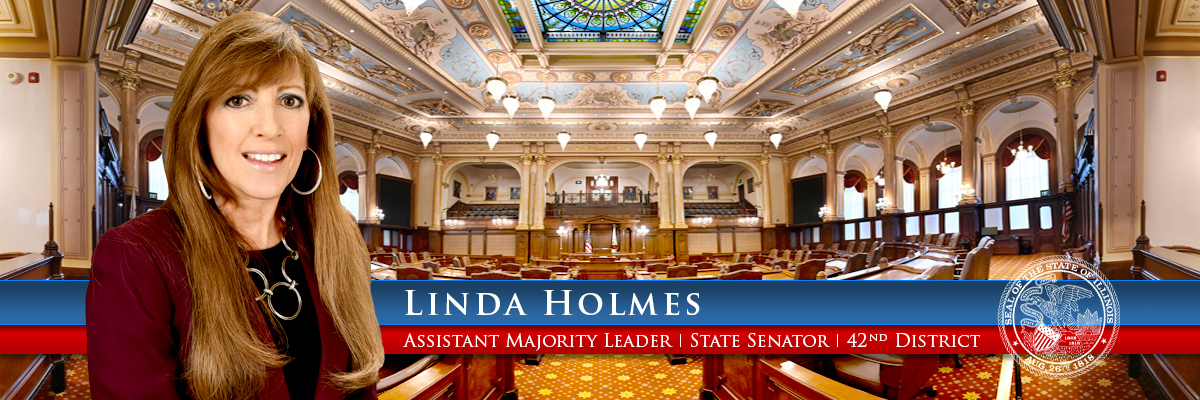- Details
- Category: Latest
 SPRINGFIELD – State Senator Linda Holmes (D-Aurora) was sworn into office on Wednesday as the Illinois Senate officially began a new session.
SPRINGFIELD – State Senator Linda Holmes (D-Aurora) was sworn into office on Wednesday as the Illinois Senate officially began a new session.
“I am ready to get to work again as we start 2019 and the 101st Illinois legislative session,” said Holmes. “I will continue working to increase local government control, economic development and government efficiency, to address health and environmental issues, and to support the working people of the 42nd district.”
Holmes has served in the Senate since 2007.
- Details
- Category: Latest
 SPRINGFIELD – State Senator Linda Holmes (D-Aurora) ensured a series of proposals will take effect to extend the same rights granted to firefighters to paramedics who are also employed by units of local government. The measures had been vetoed by the governor, but today Holmes successfully overrode those vetoes.
SPRINGFIELD – State Senator Linda Holmes (D-Aurora) ensured a series of proposals will take effect to extend the same rights granted to firefighters to paramedics who are also employed by units of local government. The measures had been vetoed by the governor, but today Holmes successfully overrode those vetoes.
“Just like firefighters, paramedics face life-threatening circumstances to save lives and serve our communities,” Holmes said. “We owe it to paramedics and their families to give them the same rights as firefighters for the dangerous sacrifices they are willing to make.”
- Details
- Category: Latest
 SPRINGFIELD – State Senator Linda Holmes (D-Aurora) overrode a veto this week of a measure to address the election of trustees for the Fox Metro Water Reclamation District. Senate Bill 2830 requires the trustees be elected rather than appointed. The bill had been vetoed by the governor in August and Holmes successfully overrode that veto today in the Senate.
SPRINGFIELD – State Senator Linda Holmes (D-Aurora) overrode a veto this week of a measure to address the election of trustees for the Fox Metro Water Reclamation District. Senate Bill 2830 requires the trustees be elected rather than appointed. The bill had been vetoed by the governor in August and Holmes successfully overrode that veto today in the Senate.
“I believe it is important that those who represent the citizens of our communities should be elected and not appointed,” Holmes said. “This bill provides for trustee candidates to go on the ballot during consolidated elections. It represents government reform that will better serve water quality needs in the future for people in the Fox River Valley.”
The Water Reclamation District was created in the late 1920s and today serves nearly 300,000 residents in Aurora, North Aurora, Boulder Hill, Montgomery, Oswego, Sugar Grove and portions of Yorkville and Batavia, according to the Board’s website.
- Details
- Category: Latest
 SPRINGFIELD – A bill sponsored by State Senator Linda Holmes (D – Aurora) to fight the growing epidemic of obesity in Illinois was vetoed by Gov. Bruce Rauner yesterday.
SPRINGFIELD – A bill sponsored by State Senator Linda Holmes (D – Aurora) to fight the growing epidemic of obesity in Illinois was vetoed by Gov. Bruce Rauner yesterday.
The measure, Senate Bill 2572, would require schools to provide a minimum of 150 minutes of physical education per school week for students in kindergarten through 12th grade.
"Governor, why do you want to limit a school’s flexibility in scheduling PE?” Holmes asked. “It is still such a minimal amount of time for physical activity that impacts health with respect to obesity-related diseases and proven research on how exercise positively affects the brain and the ability to learn.”
More Articles …
Page 59 of 95




